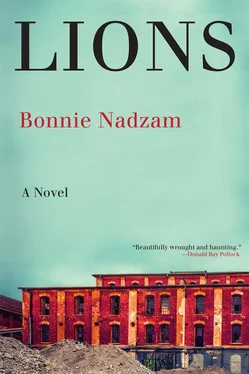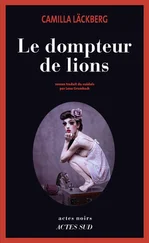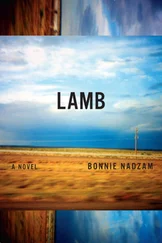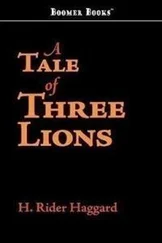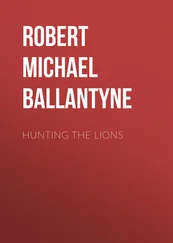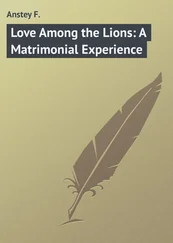“People’s lives depend upon a good weld,” his father had said, and put a heavy plate of ten practice beads before him. This was some years ago. Outside it was high summer. Eighty miles down the highway every kid he knew was out in it. He watched carefully as his father drew his finger over the top of each bead, naming its flaws. “Porous,” his father said, and took Gordon’s finger and ran it over the top of the weld. “Incomplete fusion.”
“Passed it too quickly,” Gordon said.
“Could be.”
“Or the current was too low.”
“Exactly right.”
“But these look perfect.” Gordon ran his finger over the next two.
“Those are the worst,” his father said. “Because you can hardly see anything’s wrong. It’s cracked. Lengthwise.”
“And this one at the toe.”
“That’s right.”
“This one has slag in it,” Gordon said. “And here — you can tell they weren’t pushing it fast enough. Look at that long motion they must have been making. An inch even. Look how wide the bead is.”
“And this one?”
Gordon studied at it, and glanced up at his father. “Cracked?”
“You’re guessing. Don’t guess.”
“Sorry.”
“You’re not operating from a belief system, Gordon,” he said. “You’re working with successive approximations of facts. Work with what you know. And what you don’t know, don’t guess.”
“OK.”
“Don’t tell yourself a story about it.”
“I wasn’t.”
“Make your own observations. Don’t take my word for it — or anybody else’s.”
Gordon closed the shop door, his stomach clenched. It was wrong shutting the place up on a perfectly good workday. His eyes stung as he started up the truck. For the first time in his life, regret was alive in him, making his face very still, his movements wooden. He was a block past the only stop sign in town before he realized he’d driven straight through it. His thoughts went to Dex and the short baseball player, but he knew better than to assign them responsibility for the choice he’d made. Gordon had not been there for what might have been his father’s last days in the shop. Days he could never have back.
He pulled over at the Lucy Graves. The lights were up and he could see May behind the counter, and Boyd, and a customer — trucker traffic from off the highway — perched on stools with small brown ceramic cups of coffee in their hands. May was frying up breakfasts as she prepped for the lunch hour. Four loaves of plastic-bagged white bread were out. Pink stacks of frozen ham, frozen salami, frozen bologna, filaments of waxed paper floating between each slice. A canister of mayo, an industrial-sized jar of bread-and-butter pickles, and ten pounds of frozen crinkle-cut french fries. On the stove behind her, several cans’ worth of corned beef hash simmering in an oversized skillet. Dozens of her own hens’ brown and white eggs lined up on blue dishrags beside the range.
“Gordon,” May said, when he came in and rang the bells on the glass door. She dried her hands on her apron and went to him and kissed his cheek, then set her hands on his shoulders, surveying his face. “Your dad hanging in there?”
Gordon hadn’t slept; his eyes were ringed with shadow. “Don’t really know.” He kept his gaze pointed at the floor as he spoke.
“Bad season,” Boyd said to no one in particular.
“Oh, sweetheart,” May said to Gordon, then furrowed her brows at Boyd to be quiet. She brought Gordon to the counter. “What can I get you guys?”
“Nothing that’ll get cold, I guess,” Gordon said.
“Starts cold and stays cold,” she said, “coming right up.” She turned around and stooped into a cooler. “Your dad eating too?”
“Just me and mom.”
“You want an egg and toast while you wait?”
“No, I’m OK.”
“Nonsense, let me make you an egg and toast.”
“You should let her,” Boyd said, “she does it really good.”
She set a slice of bread over the butter and onions and cracked an egg open beside it. “Poor Georgie,” she said, then she sang it again a few times, like an old song everybody knew. In three minutes Gordon had a buttered, browned slice of toast topped with a thick slice of red tomato fried in bacon fat and an egg over easy, with a cup of black coffee. He thanked her. She glanced at the customer and then again at Boyd, both bent over dishes of peppered eggs.
“You boys set?”
“All set, ma’am,” the truck driver said.
Boyd winked at her, and May gave him a stern look, shifting her eyes quickly to Gordon. She set four slices of white bread on the stainless steel counter.
“Sorry about your dad, Gordon,” Boyd said.
“Thanks.”
“Hell of a good man. There’s anything I can do you come ask me.”
“Thanks, Boyd.”
“Bologna?” May asked.
“Sure.”
“Jam?”
“Whatever you think best.”
“Good boy,” she said, opening a jar of her own chokecherry preserves.
“Tell you what, Gordon,” Boyd said, and pushed his plate back. “That story of the talents. You know it?”
May went for the relish. “Boyd just tried church in Burnsville.”
Gordon raised his eyebrows.
“Been a rough string of days for him.”
Boyd put his hands up. “I probably won’t go back though.”
“Parable of the talents,” the truck driver said, lifting his coffee.
Boyd looked at him. “That’s right,” he said, “the three talents.” He turned to Gordon and explained. “Three men get a little to go on, a little grease, right? First two guys take it and go out into the world and get busy. Work hard. Make a little more for the man who invested in them. Third man does nothing with his talent. Buries it right in his hometown, never leaves. Stays right there where all his family live and never makes any money or does anything with himself in the world.”
May snorted. “That story,” she said, and waved her butter knife, “is not about getting busy and making money.”
Boyd pointed at her. “You never been to church in your life, May Ransom.”
“Responsibility,” she said. “That’s what it’s about. You get a little grace in this life and you’re responsible for it. You cultivate it. You keep it alive. No one else is going to do it for you.”
The trucker looked at her, squinted, and frowned. “Grace comes from God.”
She peeled two pink circles of meat off a stack wrapped in waxed paper. “Gordon knows what I mean,” she said. “You learn something in school, you don’t close up your books for good. You open another book. Right?”
“Bunch of hooey,” the truck driver said, glancing up at Gordon and lifting his coffee mug. “Your buddy here is right. Don’t get stuck in a dying town and run out of business like your garage here.” He wiped his plate with a corner of toast and nodded toward the street.
“Levon’s garage went out of business?” Gordon asked.
Boyd nodded. “He’s about to. Corporate’s coming up from Denver to assess.” He made scare quotes with his fingers around the last word.
“Well, but the weld shop will never close,” May said, and closed one sandwich. “Business or no business. Walkers don’t care.” She looked at Gordon. “Sorry Gordon.”
Gordon raised his palms. “Hey,” he said, and smiled, “true story.”
“Chips? Slaw?”
“Yes, please.”
“Hear that? Yes, please. Never hear that out of Leigh, do you?”
“Our Gordon,” Boyd turned to the trucker. “So smart. He could be a doctor. His father could’ve been one, too.”
The man looked at Gordon. “You want to be a doctor?”
Gordon shrugged.
“He’s a welder,” May said.
“Bet Leigh wants him to be a doctor,” Boyd said.
Читать дальше
